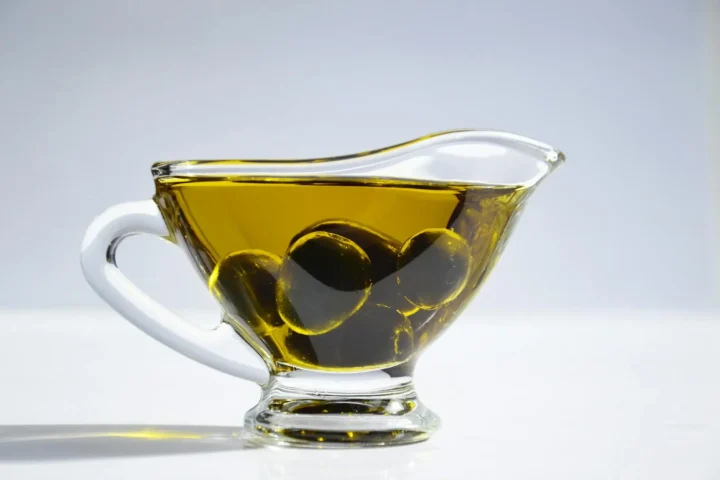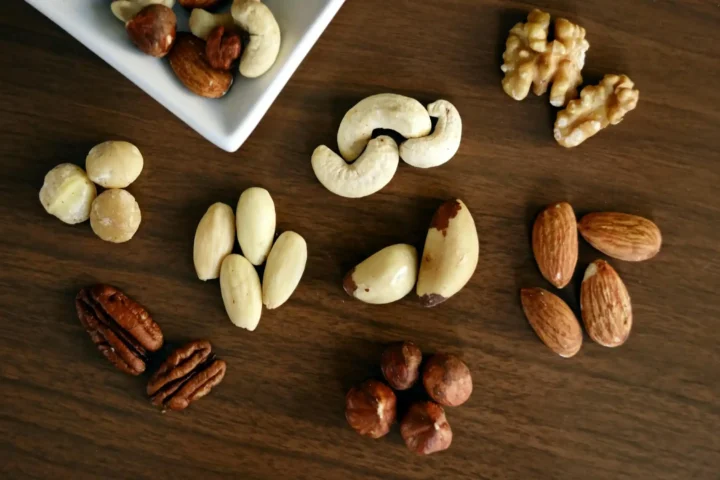Top 7 Foods That Unclog Arteries Naturally
Your arteries carry blood to every part of your body, but they face constant threats from inflammation, cholesterol, and plaque buildup.
These threats force your heart to work harder and increase your risk of heart attacks and strokes. While medications help, certain foods contain powerful compounds that naturally clean and protect your arteries.
These Top 7 foods that unclog arteries naturally not only taste good but also fight inflammation, reduce bad cholesterol, and keep your blood vessels flexible and strong. Adding them to your daily meals gives your heart the support it needs to keep you healthy and active.
1. Fatty Fish

Salmon, mackerel, and sardines pack a powerful punch against clogged arteries. These fatty fish contain omega-3 fatty acids that protect your cardiovascular health in several ways.
The healthy fats in these fish reduce inflammation in your blood vessels and help prevent blood clots from forming. When you eat fatty fish regularly, your blood pressure drops and your heart doesn’t have to work as hard to pump blood through your body.
Your body needs both good and bad cholesterol to function properly. Omega-3 fatty acids boost your levels of HDL (good cholesterol) while keeping LDL (bad cholesterol) in check. This balance helps prevent plaque from building up in your arteries, which improves blood flow throughout your body.
Scientific Research
Scientists continue to research exactly how omega-3 fatty acids fight heart disease, but the evidence shows clear benefits. Your body turns these healthy fats into special compounds that reduce inflammation and prevent blood clots. Both of these factors play a major role in keeping your arteries clear and healthy.
The American Heart Association recommends eating fatty fish at least twice per week to protect your cardiovascular health. You can bake, grill, or pan-sear these fish to preserve their heart-healthy benefits without adding unhealthy fats.
2. Berries

Blueberries, strawberries, raspberries, blackberries, and cranberries stand out as powerful fighters against heart disease. These small fruits offer huge health benefits, especially when it comes to protecting your heart and blood vessels.
A heart-healthy diet should include berries because they contain special plant compounds called antioxidants.
These antioxidants, particularly flavonoids and polyphenols, work hard to reduce inflammation in your body. When inflammation goes down, your risk of clogged arteries drops substantially.
Cholesterol Levels and C.V.S.
Your cholesterol levels play a crucial role in cardiovascular disease. Studies show that eating berries regularly helps in two ways: they increase your good cholesterol (HDL) while lowering your bad cholesterol (LDL). This dual action helps keep your arteries clear and functioning properly.
High blood pressure often signals trouble for your heart health. Research proves that people who eat berries regularly tend to maintain healthier blood pressure levels. The antioxidants in berries help your blood vessels stay flexible and strong, making it easier for blood to flow through them.
Scientists have found that berries protect your heart in multiple ways. They prevent damage to your cells, reduce inflammation, and help your arteries work better.
You can easily add these powerful fruits to your breakfast, blend them into smoothies, or enjoy them as a sweet afternoon snack whether fresh or frozen, berries provide the same heart-protecting benefits.
Related: How Long Does Freeze-Dried Food Last? Shelf Life Explained
3. Green Leafy Vegetables

Kale, spinach, Swiss chard, arugula, and other leafy greens pack powerful nutrients that protect your arterial health. These heart-healthy foods contain high levels of dietary nitrates, which help your blood vessels work better and reduce harmful inflammation.
Your body needs potassium to prevent calcium from building up in your arteries, and green leafy vegetables provide plenty of this essential mineral.
When calcium builds up in your arteries, they become stiff and narrow, increasing your risk of heart disease. The potassium in these vegetables helps keep your arteries flexible and clear.
Research Results
A 2020 study shows impressive results about these vegetables. People who eat just one serving of leafy greens each day cut their risk of coronary artery disease significantly.
In fact, the study found that regular consumption of these vegetables reduced cardiovascular problems by 12-18%.
Green leafy vegetables also help control your LDL cholesterol levels. This matters because high LDL cholesterol can stick to your artery walls and form dangerous blockages. Adding these vegetables to your healthy diet gives your body the tools it needs to keep cholesterol levels in check.
Veggies Don’t Need to Be a Chore
You can enjoy these vegetables in many ways. Add them raw to salads, sauté them as a side dish, blend them into smoothies, or add them to soups and stews.
The key is to eat them regularly, as their benefits build up over time. Start with small portions if you’re not used to leafy greens, and gradually increase your intake as part of your heart-healthy eating plan.
4. Olive Oil

Extra virgin olive oil stands among the most powerful foods for protecting against heart disease. Scientists have studied this oil extensively, learning how its unique compounds lower blood pressure and improve heart health in several important ways.
The Mediterranean diet, famous for reducing heart disease, relies heavily on olive oil. People who use olive oil as their main cooking fat show lower blood pressure and fewer signs of heart problems than those who use other fats.
The secret lies in special plant compounds called polyphenols, which fight inflammation and keep your blood vessels healthy.
When researchers look at people who use olive oil regularly, they find lower levels of inflammation markers in their blood.
These markers signal problems that could lead to heart disease, so keeping them low helps protect your heart. The oil also helps your blood vessels work better, making it easier for blood to flow smoothly through your arteries.
A Fair Warning
Not all olive oils offer the same benefits. Extra virgin olive oil contains the highest levels of these protective compounds because it goes through less processing.
When manufacturers refine olive oil more heavily, they strip away many of these beneficial substances that help control blood pressure. This makes extra virgin olive oil your best choice for heart health.
How to Consume Olive Oil
You can use olive oil in many ways to protect your heart. Drizzle it over salads, use it for cooking at medium temperatures, or dip whole-grain bread in it.
The key lies in making it your main source of fat while avoiding less healthy options like butter or processed vegetable oils. Add two to four tablespoons to your daily diet to get the most benefits for your heart health.
Also read: Different types of food cuisine across cultures worldwide
5. Beans

Beans offer a unique combination of nutrients that protect your heart and help you maintain a healthy weight. These small powerhouses come packed with soluble fiber, a special type of fiber that actively works to clear your arteries.
When you eat beans regularly, they affect your cholesterol in important ways. The soluble fiber binds to bile acids in your digestive system.
Your body uses cholesterol to make these bile acids, so when the fiber carries them away, your body needs to pull more cholesterol from your blood to make new ones. This process naturally lowers your blood cholesterol levels while boosting your HDL cholesterol.
Anti-inflammatory Properties of Beans
The anti-inflammatory properties of beans also contribute to overall cardiovascular health. Different types of beans contain various plant compounds that reduce inflammation throughout your body, including your blood vessels. Regular bean consumption helps protect your arteries from damage and keeps them functioning properly.
Weight Management Properties of Beans
Beans also stand out for their role in weight management. They rank low on the glycemic index, which means they don’t cause sudden spikes in your blood sugar levels.
This steady blood sugar control helps prevent cravings and overeating. The combination of fiber and protein in beans keeps you feeling full longer, making it easier to maintain a healthy weight.
How to use Different Types of Beans
You can choose from many types of beans: black beans, kidney beans, navy beans, chickpeas, and lentils, which all offer similar benefits. Add them to soups, salads, or grain bowls, or serve them as a side dish.
Start with small portions if you’re not used to eating beans, and drink plenty of water to help your body process the extra fiber. Aim for at least three servings of beans per week to support your overall cardiovascular health.
6. Nuts and Seeds

Almonds, walnuts, flax seeds, and chia seeds serve as natural tools to unclog arteries and support heart health. These powerful foods contain healthy fats, fiber, and special plant compounds that work together to reduce plaque buildup and maintain healthy blood flow.
How Do They Work
The healthy fats in nuts and seeds play a crucial role in fighting coronary heart disease. They help raise good cholesterol while lowering bad cholesterol.
This balance matters because good cholesterol acts like a cleanup crew in your blood vessels, removing harmful substances that could otherwise cause plaque buildup and block your arteries.
Most nuts and seeds also contain plant sterols, natural compounds that support cardiovascular health. These sterols help block cholesterol absorption in your digestive system.
When you eat nuts and seeds regularly, your body absorbs less cholesterol from your food. This effect, combined with their anti-inflammatory properties, helps maintain healthy blood flow through your arteries.
Research Results
A recent 2023 study shows that people who eat nuts and seeds regularly have a lower cardiovascular disease risk.
The fiber in these foods helps prevent plaque from sticking to artery walls, while their minerals and antioxidants protect the delicate lining of your blood vessels. This combination creates strong protection against coronary heart disease.
How to Utilize Nuts and Seeds
You can easily add these foods to your daily routine to support heart health. Sprinkle nuts and seeds on your morning oatmeal, add them to salads, or enjoy a small handful as a snack.
Start with one ounce (about a handful) of nuts or two tablespoons of seeds per day. Choose raw or dry-roasted versions without added salt or sugar to get the most benefits.
Choose different types of nuts and seeds to naturally unclog arteries. Walnuts provide omega-3 fatty acids; almonds offer vitamin E and pumpkin seeds supply magnesium. Together, these nutrients create a powerful defense system for your cardiovascular health.
7. Dark Chocolate

We’re willing to bet that you didn’t expect to see this one here, but dark chocolate brings surprising but scientifically proven benefits for your heart health. It contains powerful compounds that help protect your blood vessels and improve the way your heart works.
Studies show that dark chocolate helps manage cholesterol in two important ways. First, it reduces LDL (bad) cholesterol, which can clog your arteries.
Second, it increases HDL (good) cholesterol, which helps keep your blood vessels clean and healthy. In one study, people who drank cocoa twice daily for a month saw their bad cholesterol drop significantly.
Another Fair Warning
However, not all chocolate offers these benefits. You need to choose dark chocolate with at least 75-85% cocoa content to get the heart-protective effects.
Milk chocolate and white chocolate contain too much sugar and not enough cocoa to help your heart. The sugar content in regular chocolate can actually harm your heart health over time.
How to Get the Most Out of Chocolate
You can enjoy dark chocolate as part of your heart-healthy diet, but moderation remains key. A small square or two of high-quality dark chocolate each day provides enough of these beneficial compounds without adding too many calories or sugar to your diet.
Look for dark chocolate with minimal ingredients, avoiding those with added flavors, oils, or excessive sweeteners.
Read labels carefully. Some dark chocolate brands add unnecessary ingredients that reduce the heart-healthy benefits. The best options list cocoa or cacao as their first ingredient and contain minimal sugar. This ensures you get the most heart-protecting compounds from each serving.
Final Words
The power to protect your heart lies in your daily food choices. Each of these seven foods brings unique compounds that work together to keep your arteries clear and healthy.
Start small by adding one or two foods to your meals, then gradually include more. Combined with regular exercise and a balanced diet, these natural foods help create a strong foundation for long-term heart health.
Also Read: How Many Inches Does Food Need to Be Stored Above the Ground? Safety Guidelines


